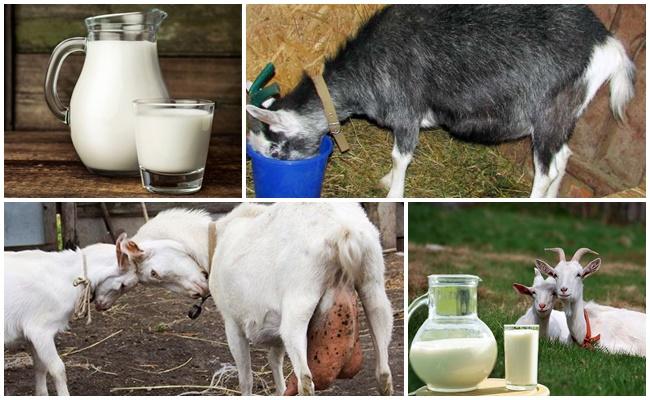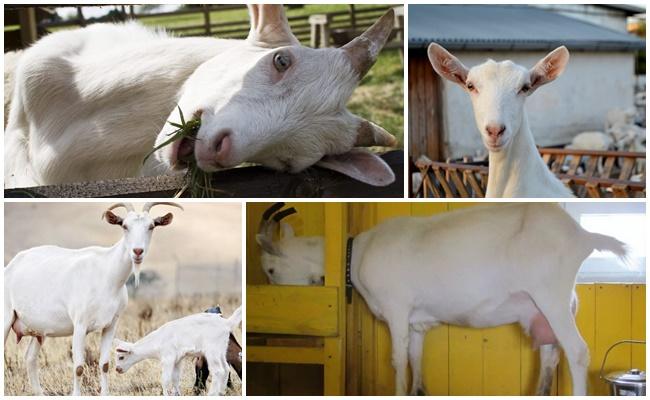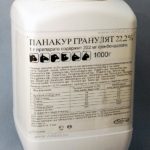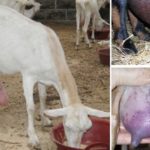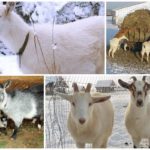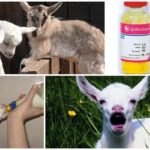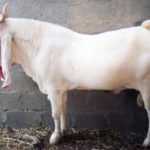Goat's milk is superior to cow's milk in many respects: it is fattier, easier to digest, and practically non-allergenic. At the same time, goat breeders encounter bitterness in it much more often than cow owners. There are several reasons why goat milk tastes bitter. In most cases, they are solvable, but sometimes, for example, when it comes to the age of the animal, it is difficult to cope with the problem.
Causes of bitter taste
If any deviations appear in the taste of milk, especially unpleasant ones, you should first of all look for the cause in the diet and health of the goat. Plants that negatively affect the taste and smell of goat milk:
- wormwood, quinoa, horsetail, celandine, tansy, green rapeseed (at the same time, in small quantities, wormwood and tansy are needed as anthelmintic folk remedies);
- onions, garlic and wild garlic, beet tops;
- tree foliage, coniferous branches;
- raw potatoes and their peelings;
- pulp, any rotting feed.
Stale water can also give milk an unpleasant taste.
Other painful conditions of the animal that provoke bitterness in milk:
- vitamin A deficiency in the winter months;
- infection by parasites - in goats most often cestodes, nematodes and trematodes;
- before the birth of kids and for two to three weeks after lambing (for first-calf goats - a little longer);
- hormonal imbalance - can occur after lambing or due to improper feeding (in particular, wheat);
- liver failure, gall bladder problems.
In older goats, milk is more likely to taste bitter. The taste of milk can be spoiled by improper milking and storage technology. Thus, goat udder tissue contains an increased amount of the reductase enzyme. Interacting with milk fats, it causes bitterness, so the first portions of milk are milked separately, without mixing with the total volume. In addition, a bitter taste may appear:
- when storing milk in the light or in a copper container (this promotes the decomposition of fat in it);
- with intensive mixing and enrichment of the product with air;
- when mixing milk yields obtained at different times.
During long-term storage without heat treatment (more than two days), a rancid taste appears from an increase in the volume of soluble casein in milk. At the same time, its ability to coagulate into a clot also deteriorates.
How to solve problems with bitter milk
First of all, they check the animal’s diet, exclude from it feed that can cause bitterness, change the pasture if necessary, checking in advance that there are no “forbidden” plants within the reach of the goats.
To exclude helminthic infestation, animals can be dewormed independently, the entire livestock, including the kids, at the same time. Starting from the age of three months, goats should receive anti-parasite medications twice a year, lambing goats - a month after the birth of the kids and again - two weeks later. In winter, animals are given special preparations that replenish the deficiency of vitamins A, D, E, which affect the taste of milk.
To store it, use glass or at least plastic containers; during transportation, the containers are filled completely, reducing the likelihood of shaking, and processed (fermented, boiled, pasteurized) as quickly as possible after milking.
If these factors are excluded, you should contact a veterinarian to examine the animal. In particular, mastitis in the initial stages is manifested only by the bitterness of milk (external signs become visible later). It is not recommended to make a diagnosis on your own, much less treat an animal: treatment is carried out with an antibiotic that is sensitive to the specific type of microbes sown in the analysis. Symptoms of various diseases of the internal organs or infectious diseases may also not be visible to the goat's owners.
Preventive actions
Experienced goat breeders, if they have areas for grazing, sow them with clover and other herbs useful as fodder in the fall. If this is not possible, before taking the animals to a certain pasture, they inspect it and mark areas with plants harmful to goats, and keep the goats on a leash away from them.
The main prevention of mastitis is compliance with sanitary rules for keeping animals, hygienic and technical rules for milking (washing hands, using clean towels, washing the udder, milking without damaging the goat’s mammary glands).
Prevention of helminthic infestations - timely feeding of goats with special preparations (such as Panacur, Manizen) with preliminary treatment against fleas, since some types of these insects are carriers of worms.
Please note: even with regular anthelmintic procedures, it is impossible to protect animals from parasites, since sources of infection include pasture, water from puddles after rain, and not always properly stored feed, and other animals.
Is it possible to use this product?
It is advisable not to use bitter milk in any form and not to process it into fermented milk products (however, it ferments poorly, the consistency of cottage cheese or cottage cheese is unsatisfactory, and the bitterness in them is even stronger). The point is not only that the taste of the product in which such milk is used will be spoiled. Harmful microorganisms that give it bitterness can cause harm to human health.

